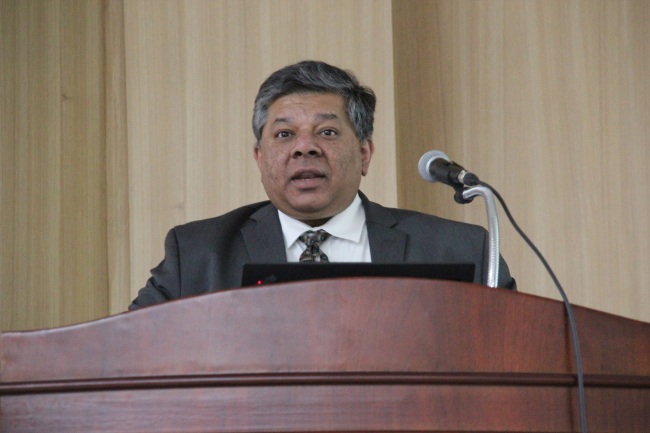‘Korea excels in regenerative medicine’: Deloitte Anjin
By Lim Jeong-yeoPublished : April 10, 2019 - 17:04
South Korea excels in the field of regenerative medicine, one of three key next-generation gene technologies, said Amit Agarwal, managing director at Deloitte Consulting in San Francisco.
Agarwal spoke at Deloitte Anjin’s seminar for Life Sciences and Healthcare Solutions, held at the Korea Pharmaceutical and Bio-Pharma Manufacturers Association in Seocho, Seoul on Tuesday.
With worldwide health care spending estimated to top $10 trillion by 2022, global pharma sales are anticipated to reach $1.2 trillion by 2024. Approved gene- and cell-based orphan drugs -- rare disease treatments -- will account for over $9 billion in sales by 2024, according to Deloitte.
Agarwal spoke at Deloitte Anjin’s seminar for Life Sciences and Healthcare Solutions, held at the Korea Pharmaceutical and Bio-Pharma Manufacturers Association in Seocho, Seoul on Tuesday.
With worldwide health care spending estimated to top $10 trillion by 2022, global pharma sales are anticipated to reach $1.2 trillion by 2024. Approved gene- and cell-based orphan drugs -- rare disease treatments -- will account for over $9 billion in sales by 2024, according to Deloitte.

This is where the three key next-generation gene technologies come in: modification of gene expression, gene correction and regenerative medicine.
For gene expression and correction, the US and Europe, which have enjoyed a head start, host about 80 percent of gene therapy companies. China is chasing in the race, with a substantial volume of clinical trials.
As for regenerative medicine, which centers on the ability to grow new cells and organs to replace damaged ones, Korea is the leader.
“Korea is the world leader in regenerative medicine. It dominates and moves forward. Korean companies have already gone further than most other companies in how to manipulate and control cells,” Agarwal said.
The majority of approved regenerative medicines come from Korea. Korean firms with approved regenerative medicines acknowledged by Deloitte Anjin include Sewon Cellontech’s Ossron, Cha Bio & Diostech’s Hyalograft 3D, Tego Sciences Holoderm and Kaloderm, Anterogen’s Queencell and Cupistem, FCB Pharmicell’s Cellgram-AMI, Medipost’s Cartistem and Corestem’s Neuronata-r.
These medicines cover wound care, cartilage replacement, heart conditions, ophthalmology and intravenous cell therapy.
Deloittes’ statistics say that between 2015 and 2018, upfront payments for acquisitions for next-generation therapy technologies notched in excess of $100 billion, demonstrating the market value. The US Food and Drug Administration expects 200 applications yearly for investigational new drugs in the cell and gene therapy stream by 2020. The agency foresees 15 to 20 approvals per year by 2025.
Combined with efforts to make treatments more affordable for the public, the market is expected to draw increased investment to its research and development.
By Lim Jeong-yeo (kaylalim@heraldcorp.com)










![[Hello India] Hyundai Motor vows to boost 'clean mobility' in India](http://res.heraldm.com/phpwas/restmb_idxmake.php?idx=644&simg=/content/image/2024/04/25/20240425050672_0.jpg&u=)








